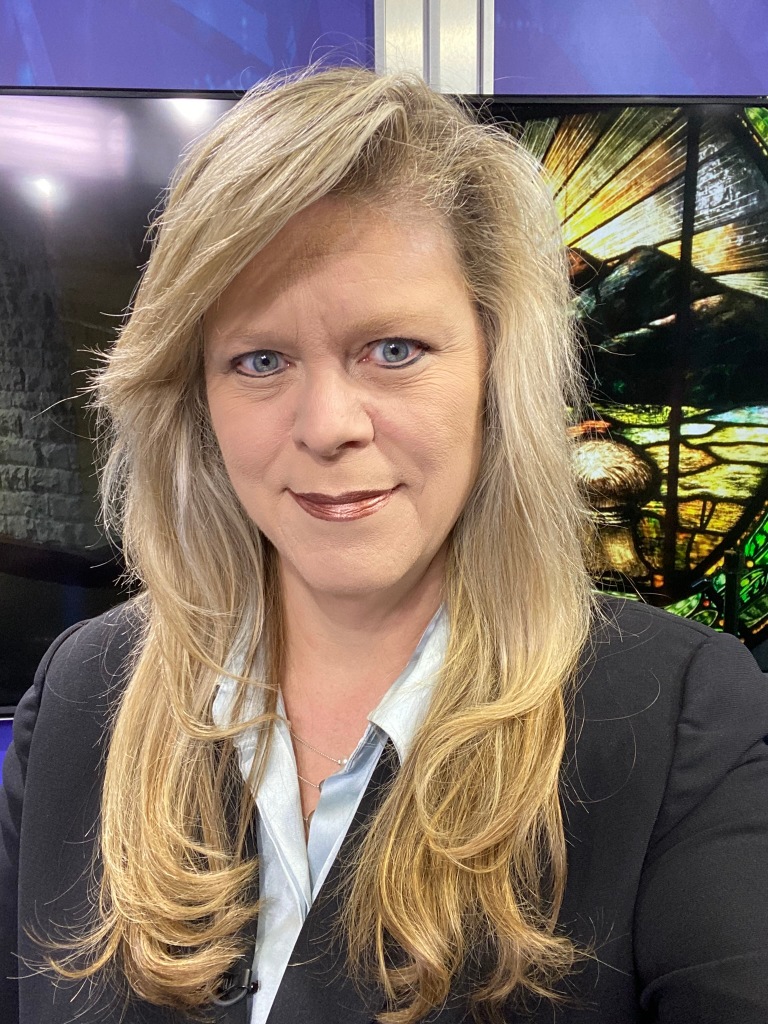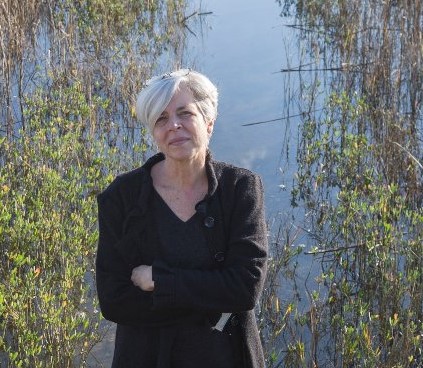The Press Cohort (Ohio)

Karen Kasler manages a team of four journalists who cover the Ohio Statehouse for the state’s public radio and TV stations.
Every single member of Karen’s team was nominated more than once, a testament to her ability to not only analyze and communicate complex data regarding COVID-19, but also to build and lead a team that does data journalism right.
“The idea that I’m doing calculations and dealing with stats and data – and enjoying it – would STUN my high school math teachers,” Karen joked, noting how much work went into giving the numbers and then telling the stories behind those numbers.
She’s been tracking confirmed cases and deaths since March 9, 2020, investigating issues related to data integrity within the state. She covers everything from schools, to nursing home deaths, to vaccination issues, and changes in state policy.
She posts a data update for Ohio to her Twitter page every day at about 2 PM CT, as soon as the state’s data comes out.
“Through radio and TV stories, we’ve talked to doctors and experts about COVID deniers and nursing home staff rejecting the vaccine, to families devastated by loss and workers who can’t get unemployment benefits, and to struggling business owners and to lawmakers about public safety versus the push to “open up Ohio”.
Her stories always put data front and center, adjacent to the scientific and political voices swirling around information access and transparency.
“I’ve been tracking nursing homes for a while,” she said. “At one point, more than 70% of deaths were in those facilities. The state hasn’t made it easy because they count deaths before April 15 and after April 15 separately.”
“Since I’m a broadcast journalist, I have to make all the data simple for a listening/viewing audience. So here’s how I highlight the most important data on hospitalizations/testing/vaccines from the state’s website:”
“While our governor was initially aggressive about shutdowns, he’s gotten pushback from his fellow Republicans in the legislature – some of whom are straight-up conspiracy theorists. They’re enabled by this guy (Jack Windsor). As the pandemic started, he ran a wedding venue. He suddenly decided he was an “investigative journalist” and infiltrated the governor’s daily press conferences – much to the frustration of actual journalists.”
Karen’s teammates who have been nominated include Andy Chow, Jo Ingles, and Dan Konik.

A few words from those who nominated Karen and her team:
“Karen Kasler manages a team of truly talented individuals. I don’t know if she has a background in statistics or math, but she has managed to make sense of all these numbers for us. She doesn’t just throw the numbers at us like some people – she puts them in context so we understand what they mean for our lives. And she has mentored two people that could equally be considered for your award. But as the leader, you have to nominate Ms. Kasler!”
“Andy has done an exemplary job, along with colleagues Jo Ingles and Karen Kasler, providing data and analysis on the coronavirus crisis in Ohio, as well as how it affects listeners’ lives. His deep involvement with the issue has made him a trusted household name around the state.”
“Jo has continued thru her Twitter feed and on radio/television to post data and relevant news about the pandemic. I am most familiar with her Twitter postings geared toward understanding the raw data. “





